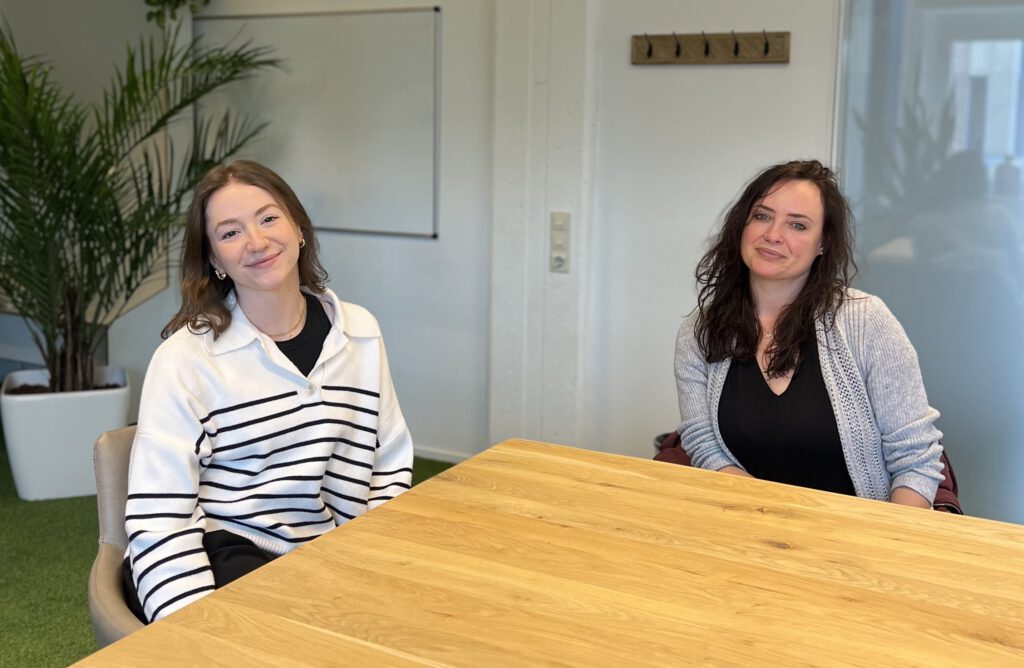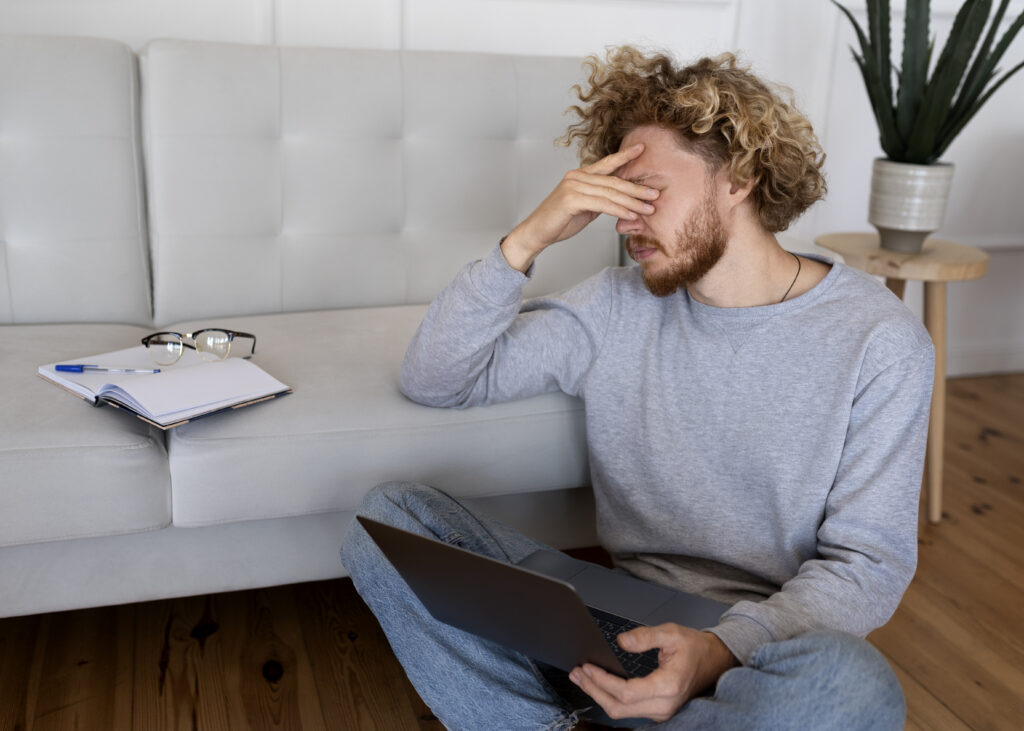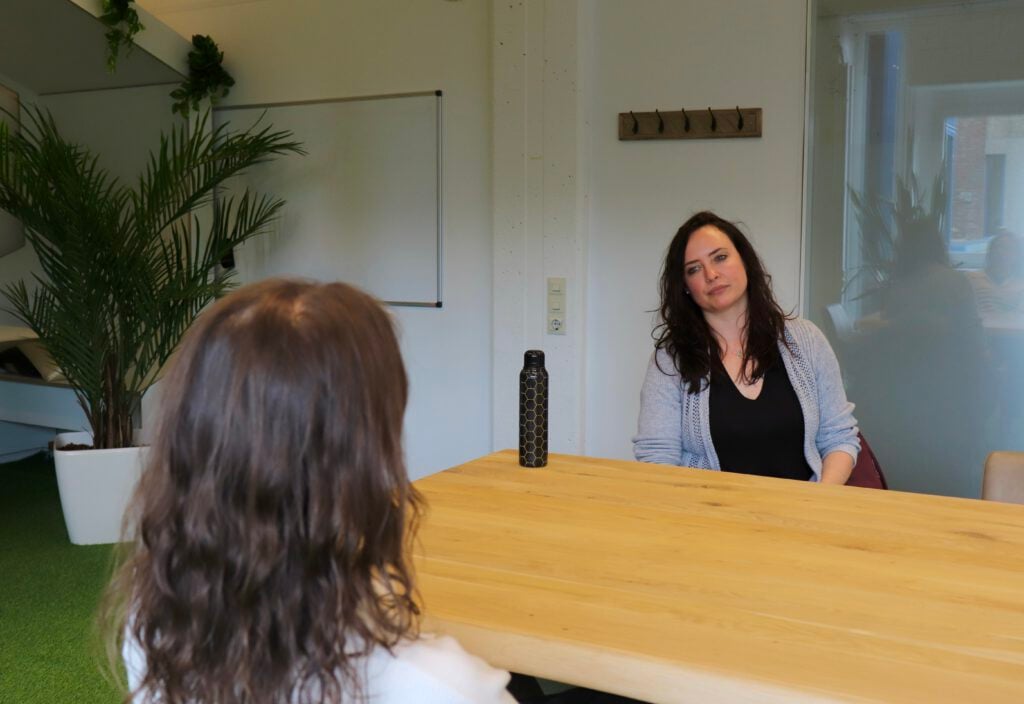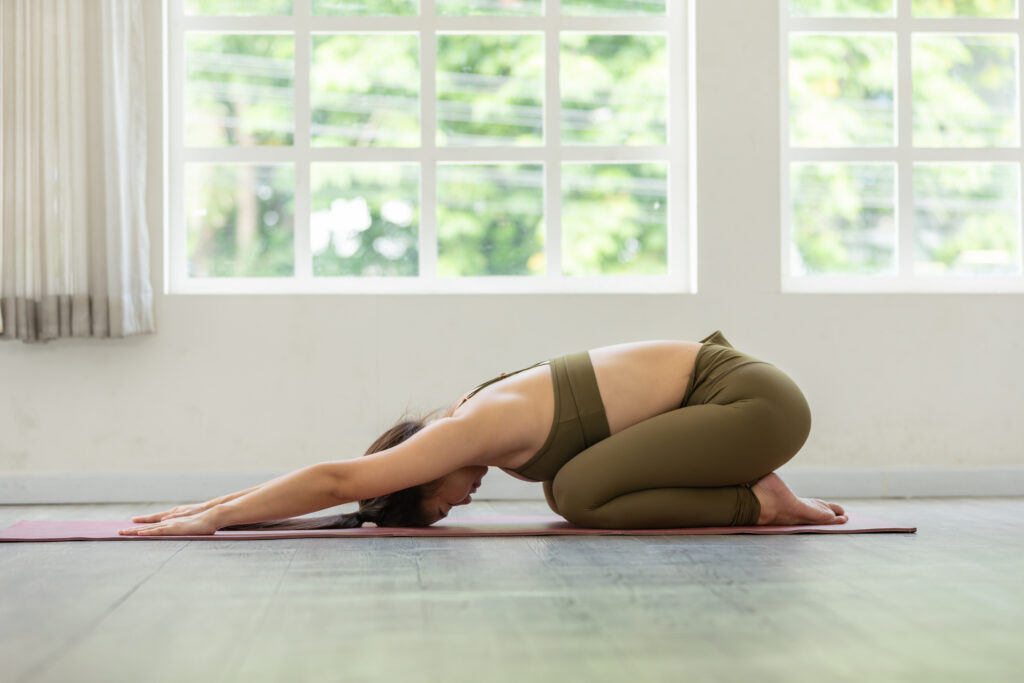If you’re an expat in the Netherlands, you’ll know how living in a foreign country, surrounded by a foreign language and without an established social circle can be tough on your mental health.
Many internationals struggle to find mental health support in the Netherlands for various reasons: Dutch GPs are… intimidating, waiting lists are long, and linguistic and cultural differences present a hurdle.
That’s where an expat psychologist like Amanda Mauro Counseling can help.
I had the pleasure of meeting Amanda for a chat at our Leiden office to discuss all things mental health, living abroad, and taking care of your body. 👇
Meet Amanda, an American psychologist in The Hague
Hailing from North Carolina, USA, Amanda came to the Netherlands for university.
Like many of us, she quickly fell in love with Dutch culture and lifestyle — and a Dutchie. Before she knew it, she had decided to stay.

With two Bachelor’s and a Master’s in hand, Amanda became accredited by the Netherlands Institute of Psychologists in 2019 and started her psychological practice in The Hague.
Here, she works with clients from around the world. “I love working with all different types of people,” Amanda says, “I’m just fascinated with understanding human behaviour.”
With her clients, Amanda integrates techniques from polyvagal theory, emotionally focused therapy, cognitive behavioural therapy, and narrative therapy into her practice — all while paying close attention to the connection between mind and body.
A psychologist who understands the expat struggle
As an expat herself, Amanda has first-hand experience of the difficulties and frustrations that come with starting a new life in a foreign country — challenges that many of us know very well.
When asked about some of the biggest struggles she sees in expats, Amanda emphasises that “of course, everyone’s situation is different — but I think integrating and finding a sense of community [is a big one].”
“It’s hard to make friends, especially as you get older — so that sense of community is probably one of the biggest things that I see expats struggling with.”

In the Netherlands specifically (surprise, surprise), Amanda acknowledges that “the healthcare system is challenging for internationals, and many struggle with feeling heard with their health concerns.”
So, how can we internationals take care of our mental health while also balancing our day-to-day responsibilities and, of course, enjoying our time in the Netherlands?
For Amanda, the answer is twofold: We need to care for our bodies and minds.
An approach aimed at lifestyle changes for a healthy mind
Amanda prioritises educating her clients about the importance of the nervous system, emphasising the relationship between the mind and body.
“Foundationally, I always start working with my clients by educating them about the nervous system, our bodies, and what they are designed to do,” she explains.
“I think it’s important to know what physiological shifts in your nervous system mean.”
“When we start to understand that our body is just doing what it’s designed to do — keeping us safe and alive — then that opens up some compassion for what our body tries to convey to our minds.”
How the mind and the body work together
From this starting point, Amanda does a lot of work from the polyvagal approach, which focuses on the vagus nerve to see how you can gain agency and autonomy in different situations.
“The vagus nerve is the longest nerve in our body, starting at the base of our skull and connecting all of our facial muscles, our lungs, our heart, and our digestive system. It’s kind of like a signal highway. When we get stressed, we feel it directly in our gut.”
(Yes, that’s why you get that awful pit in your stomach every time you have to speak Dutch to your in-laws. 🫣)
From there, the sense of stress moves to our brains, where it consumes us.

“Around 80% of signals come from our body and go to our brain, so for the most part, a lot starts in our body.”
The solution? We need to listen to our bodies.
Going back to the basics and listening to our bodies
We humans are very complex creatures “with a huge spectrum of emotions that we’re supposed to have,” Amanda stresses.
So the goal of therapy should not be “to avoid anger, aggression, and anxiety but to learn how to stay in control of them.”
What does that mean? It means that whatever you feel at any given moment is what you’re supposed to feel at that moment, based on your body’s natural cues and previous experiences.
What Amanda helps her clients focus on is:
- How can I work through this feeling instead of suppressing it?
- How do I listen to what my body needs?
- How do I heal from the things that trigger me?

“Once you are aware of your neuroception (a process that scans anything and anyone you interact with), you can bring cognition to — and work through — your irrational thoughts and behaviours” Amanda explains.
That’s where Amanda starts her focus: by identifying the situations that impact you and finding out why.
From there, it’s time to branch out and find solutions.
Focusing on the physical
Once you become aware of the enormous impact your body has on your mental health, one thing is certain: we must implement healthy habits for a healthy mind.
That’s why Amanda’s next step is to find ways to deal with your mental health triggers.
For example, does mindfulness work for you? How about breathing techniques? Maybe Cognitive behavioural therapy? How about working on assertiveness or building more self-confidence?
As a certified yoga teacher, Amanda also offers her clients the possibility of practising yin or restorative yoga to release tension in the body.
This can be especially effective for women, who “hold a lot of tension in their hips,” or those suffering from trauma.
For trauma clients, Amanda explains, “It’s important to reestablish how you move within your body, to regain a sense of control.” That’s why methods like bodywork, yoga, and breathing techniques can work extremely well.

But no matter the issue, Amanda meets her clients where they’re at and helps devise lifestyle changes that can help better manage their mental health concerns. These can range from practising breathing techniques to discussing sleep cycles and eating habits.
“Movement and releasing physical tension have really helped me, and that’s why I go down this path with my clients,” she explains. “It’s wonderful when it can help others.”
How can AMCounseling help me?
With her person-centred approach, Amanda Mauro helps her clients in various ways, addressing anything from trauma, anxiety and depression to burnout and interpersonal relationships.
And from what I can tell, she does so with enormous compassion, patience and a smile on her face.
“The finish line is when we die,” Amanda says. “Healing is not linear; you go ten steps forward, four steps back, then seven steps up.”
“We can’t get rid of our experiences, but we can learn to work through them and heal from them — and that’s pretty cool.”
Amanda offers sliding-scale income-based pricing to her clients and would love to help you navigate your new life in the Netherlands.
Want to know more? Contact her today for a free introduction call!
What is your experience with mental health in the Netherlands? Did you find it easy to feel at home in a new country? Share your experience in the comments.